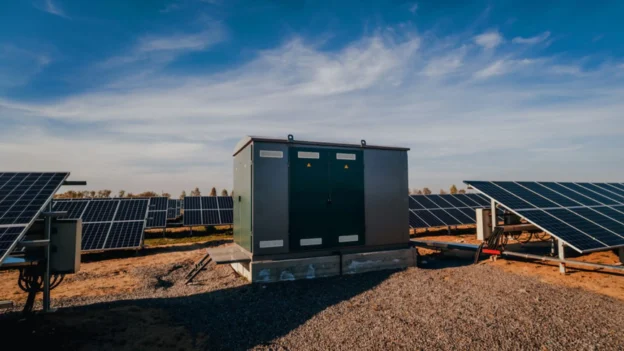With the launch of a battery energy battery energy storage system (BESS) (BESS) system, the Adani Group is consolidating its role as a key player in the transition to clean energy. The facility, located at the Khavda renewable complex in Gujarat, will reach 1126 megawatts of capacity and will be able to store up to 3530 MWh, enabling it to deliver continuous power during peak demand of up to three hours.
Battery project to ensure stability and efficiency
This infrastructure, based on lithium-ion lithium-ion batteries and advanced energy management systems, responds to the need for a more stable, reliable and efficient power grid. By releasing energy during times of peak demand and storing the surplus generated by renewable sources, the BESS system will help reduce grid congestion and minimize the loss of unused solar unused solar energy.
Integrated into what is already the largest renewable energy park in the world, the BESS system system represents a key building block on India’s path to energy independence. It is scheduled to be operational by March 2026, aligned with the country’s net-zero emissions targets and sustainable electrification strategy.
Large-scale ambitions and global leadership
From this base, Adani plans to expand its storage capacity to 15 GWh by fiscal 2027 and to reach 50 GWh within five years. This roadmap positions the group not only as a national pioneer, but also as a relevant player in the global clean energy infrastructure.
Energy storage is essential for the renewables-driven future. This project marks a turning point for India and sets new global standards.
Gautam Adani, Chairman of the Group, said.
Source and photo: Adani

